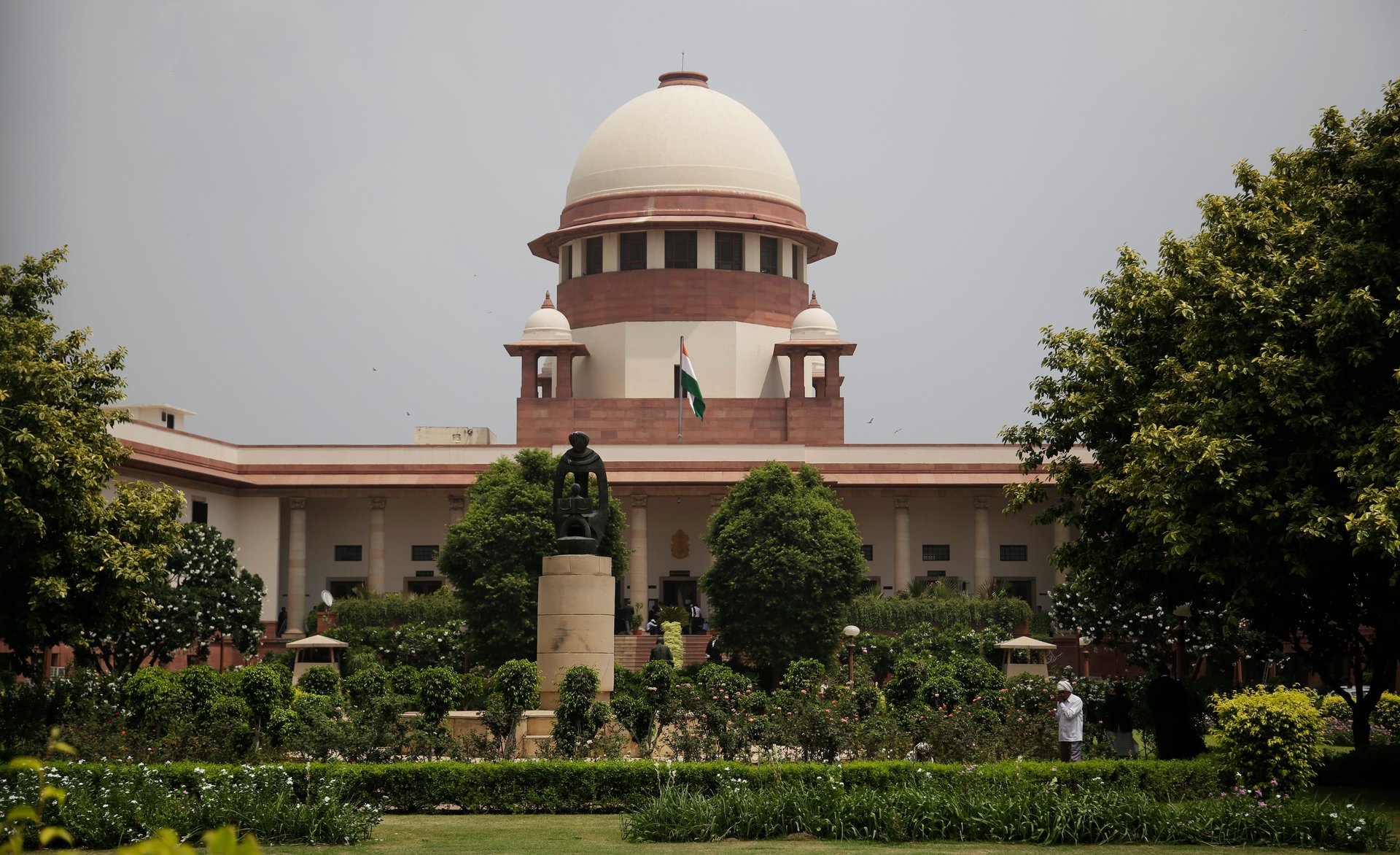A constitutional expert explains the crisis unfolding in India’s supreme court
India’s supreme court plunged into turmoil on Friday (Jan. 12). Four top judges broke with convention and spoke out openly against the chief justice of India over the rot in the upper judiciary.


India’s supreme court plunged into turmoil on Friday (Jan. 12). Four top judges broke with convention and spoke out openly against the chief justice of India over the rot in the upper judiciary.
The crisis is nothing like anything India has seen, sparking intense speculation over the immediate and long-term implications on the country’s top court.
Constitutional expert and supreme court senior advocate, Arvind Datar, spoke to Quartz about what this development means.
Edited excerpts:
Do you see this as a revolt from the four judges?
I won’t call this a revolt, but it’s an expression of dissatisfaction that their view was not considered.
Would you be able to comment on which cases were being referred to?
They have not specified the cases, but there is speculation about the manner in which earlier some cases were heard by a particular bench and then transferred. They have referred to the Luthra case and now again, the rumour is that the other latest case from Bombay (HC). We don’t know.
You mean the Justice Loya case?
That’s not the point. The point is that four judges have addressed the press in an unprecedented move, which just shows that they must have been driven to the wall.
What were the alternatives available to them?
There were no alternatives left and that’s why they have gone to the press.
Is the chief justice’s position under threat? Will he resign or will he be impeached?
These are only speculations. I can only hope that this will be a turning point where the method of working will be in a standardised, systematic form which was there in the past.
Do you think this was triggered by some personal animosity between the judges?
No, no. It is not a personal issue at all. These judges wanted to just mention that the cases are being assigned in a random fashion. Normally, if the chief (justice) can’t hear it, it goes to the second or the third senior judge and it is unusual to push it down to the judges way down in the line.
What impact will it have on the institution?
I think it is a temporary setback to the reputation of the institution, but in the long run, it will have a sort of cleansing impact. In future, unilateral decisions of posting cases will be avoided.
So the government can’t step in?
No, the government has nothing to do with it and this is the internal matter of the judiciary.
So you agree with Justice Chelameshwar that there have been slip-ups in case allocation?
Yes, yes, yes. There are cases where they were being heard by a particular bench. Suddenly, they were taken off and sent to another court, called out in the afternoon and dispersed.
If it’s an issue within the judiciary, how is coming to the media, going to resolve it?
They (the judges) have made their point clear: Look, we are helpless, we have told the chief justice to do things in a particular way. He has not done, therefore, we are compelled to come to the media. We don’t want to mention individual cases because that will further damage the institution and we don’t want to do that.
They have just expressed their anguish and helplessness and left it at that.
Who do you think is going to resolve the issue?
Once more, if the cases are posted not to the senior judges but to the judges lower down the line then we will have to seriously question it. For now, they have said we do not agree with it and in the letter, too, they have asked the chief justice to restore the institution back to its old (glory). If they don’t do anything then we will see what happens.
But what are the options available?
I don’t know, but the point is that they have sounded the alarm bell and justice Chelameswar has said that lots of things are left to be desired and he has used quite strong words. So we will have to take it from there and now hopefully this is going to completely clean the system.
Will all the cases being questioned today have to be re-heard now?
The chief justice of India can still decide that he does not want to reallocate the cases. If he says what I am doing is correct, what can you do?
Will that damage the institution further?
Exactly, it is. In England, there are no rules at all. They all go by healthy conventions. Ultimately, at the highest level, a lot has been done just by constitutional conventions. You leave it to the good sense, maturity, and oath that a person takes that he will uphold the constitution. And upholding the constitution includes upholding the constitutional values.
Is the president going to have a role in this?
Nothing, nobody (else) has a role in this. Under the constitution there is no role envisaged for the president under this.